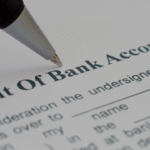Sending money from the United States to Nigeria has become easier and faster thanks to online money transfer platforms, international banks, and digital wallets. Whether you’re supporting family, paying for services, or making business transactions, it’s important to use a secure, cost-effective method that gets your money there safely.
In this guide, we’ll walk you through the step-by-step process to send money to a Nigerian bank account from the USA, highlight the best money transfer services, list applicable fees, and share tips to avoid common mistakes.
Why Send Money to Nigeria from the USA?
Nigeria is one of the top destinations for remittances from the United States. According to the World Bank, Nigeria receives billions of dollars in annual remittances, with a large portion coming from the U.S.
Common reasons people send money include:
- Supporting family members
- Paying tuition or medical bills
- Funding real estate or business projects
- Making donations or investments
Whatever your reason, choosing the right transfer method is key.
Requirements to Send Money to Nigeria
Before you initiate a transfer, here’s what you’ll need:
- Your full name and address (as per ID)
- Receiver’s full name
- Receiver’s Nigerian bank name
- Receiver’s bank account number (NUBAN – 10 digits)
- Bank Verification Number (BVN) (optional but helpful for larger transfers)
- Purpose of the transaction (optional depending on the provider)
Best Ways to Send Money from USA to Nigeria
1. Wise (formerly TransferWise)
Wise is known for transparency and competitive exchange rates.
- Transfer Type: Bank-to-bank transfer
- Speed: 1–3 business days
- Fees: Low, based on the amount
- Exchange Rate: Real mid-market rate
- Pros: No hidden fees, fast service
- Cons: May not support all Nigerian banks for USD-to-Naira conversions
2. Remitly
Remitly allows both express and economy transfers.
- Transfer Type: Bank deposit, mobile money, or cash pickup
- Speed: Minutes (Express) or 3–5 days (Economy)
- Fees: Vary; Express is more expensive
- Exchange Rate: Competitive
- Pros: Easy app, high daily limit
- Cons: Requires ID verification
3. Sendwave
Sendwave is popular for its zero-fee mobile transfers.
- Transfer Type: Mobile app
- Speed: Instant
- Fees: Usually zero
- Exchange Rate: Slightly marked-up rate
- Pros: Instant delivery, no fees
- Cons: Only available via mobile app
4. WorldRemit
Another reliable service for sending money to Nigerian bank accounts.
- Transfer Type: Bank, cash pickup, or airtime top-up
- Speed: Minutes to 1 business day
- Fees: Flat fee (usually under $5)
- Exchange Rate: Fair
- Pros: User-friendly, fast
- Cons: Limited payment options
5. Western Union / MoneyGram
Good for cash pickup or direct deposit in Nigeria.
- Transfer Type: Cash or bank deposit
- Speed: Minutes
- Fees: Higher than online platforms
- Exchange Rate: Less favorable
- Pros: Widely available
- Cons: Higher costs

Step-by-Step: How to Send Money to Nigeria
Here’s a basic guide using an online transfer service (e.g., Remitly or Wise):
Step 1: Create an Account
Sign up for a free account using your email and verify your identity.
Step 2: Enter Receiver’s Details
Include full name, bank name, and 10-digit NUBAN account number.
Step 3: Choose Amount & Currency
Enter how much you want to send and whether it should be received in Naira or USD.
Step 4: Select Payment Method
Pay using your U.S. bank account, debit/credit card, or PayPal (if supported).
Step 5: Review & Confirm
Double-check all details. Confirm the transaction and save the receipt or reference number.
How Much Does It Cost?
Costs depend on:
- Transfer Amount – Higher transfers may have lower percentage fees.
- Speed – Express services cost more.
- Currency – Naira transfers often have different rates than USD transfers.
- Platform – Fees and rates vary by service.
Tip: Use comparison sites like Monito to find the cheapest way to send money.
Is It Safe to Send Money to Nigeria?
Yes, if you use:
- Licensed money transfer services (regulated by U.S. and Nigerian authorities)
- End-to-end encrypted apps
- Verified bank accounts
Avoid sending money through unverified agents, random WhatsApp groups, or social media deals.

Bank Transfer Limits & Regulations
The Central Bank of Nigeria (CBN) and the U.S. Treasury regulate cross-border payments.
Here’s what to keep in mind:
- Daily/monthly limits vary by provider.
- BVN or government ID may be required for higher transfers.
- For business payments, you may need to provide an invoice or business purpose.
Tips for Faster, Cheaper Transfers
- Use online services for lower fees
- Compare rates before sending
- Avoid sending small amounts frequently (group payments)
- Use bank transfers instead of cards if possible
- Refer friends to earn bonuses (many apps offer this)
Example: Sending $500 from USA to Nigeria
| Platform | Fees | Exchange Rate (Sample) | Recipient Gets |
|---|---|---|---|
| Wise | ~$6 | 1 USD = ₦1,450 | ₦722,000 |
| Remitly (Economy) | $3.99 | 1 USD = ₦1,480 | ₦740,000 |
| Sendwave | $0 | 1 USD = ₦1,460 | ₦730,000 |
| MoneyGram | $10 | 1 USD = ₦1,400 | ₦700,000 |
Rates and fees may vary. Always check before sending.
Need Help with Business Transfers?
If you’re a business owner or freelancer receiving payments from U.S. clients, platforms like Payoneer or Wise Business accounts may offer better solutions.
You can also open a U.S. business bank account remotely through providers like FormLLC.
Learn how to open a U.S. business bank account
Final Thoughts
Sending money to a Nigerian bank account from the USA is safe, fast, and affordable if you choose the right platform. Prioritize security, low fees, and good exchange rates to make the most of your transfer.
For personal remittances, platforms like Wise, Sendwave, and Remitly are great choices. For business or bulk payments, consider dedicated business platforms and get professional help if needed.
The best ways include Wise, Remitly, Sendwave, and WorldRemit depending on fees, speed, and convenience.
Most services complete transfers within 1–3 business days; some offer instant delivery.
No, PayPal does not support receiving funds in Nigeria. Use alternatives like Wise or Remitly.
No, but the recipient may need it for higher amounts or verification.
Limits vary by provider. Most allow $2,999 per day for personal transfers, more with verification.
Yes, but for amounts above $10,000, U.S. federal law may require reporting to the IRS.
Yes. Most online transfer services allow direct deposit into Naira or USD bank accounts in Nigeria.
Latest Post





